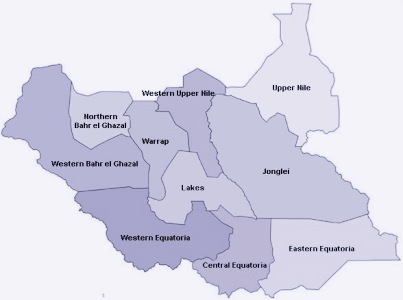Chollo intellectuals oppose President’s decree on new states
October 12, 2015 (KAMPALA) – Intellectuals from the Chollo community in South Sudan’s Upper Nile state have opposed President Salva Kiir’s intended move to create 28 new states in the country, saying it contravenes provisions of the just-concluded peace deal.

Joshua Otor Akol, a leader of the Collo intellectuals committee in Juba, told Sudan Tribune say they support the peace implementation and urged Kiir to focus on peace.
Akol is optimistic Kiir will bring peace, if some insiders around him of who “work day and night to fail” the peace accord signed with the opposition do not interfere with the process.
“We, however appreciate your dire commitment for working very hard to achieve peace and stability in the country. Moreover, we are much concerned about the suffering of innocent people of South Sudan especially after obtaining golden independence,” he said.
The Chollo intellectuals, despite backing the president’s decree, also expressed concerns about the new directive, which takes away segments of their land from Chollo Kingdom.
In 2004, according to Akol, the late founder of the Sudan People Liberation Movement (SPLM), John Garang Mabior created four counties, and these included Payinkango, Malakal, Pashoda and Manyo, which were all dominated by the Chollo Kingdom.
“Therefore we are against annexation of part of our territory to any other areas. If the division was based on ethnic grouping, then the Chollo Kingdom should remain intact,” he stressed.
The group of Chollo intellectuals further claimed president Kiir had violated the Transitional Constitutions of South Sudan for 2011, amended 2015 Article 162 (1), (3), (4) and Article 166(A) and 6 (A) following his recent decree on the expansion of more states.
Chollo Kingdom, Akol said, is a huge land on both sides of River Nile and the Sobat River.
He however stressed that it was time to work for peace and stability after months of conflict.
“Cognizant that a federal system of government is a popular demand of the people of South Sudan and the need for the TGONU [Transitional Government of National Unity] to reflect this demand by way of devolution of more power and resources to lower level of governments and to initiate that a federal and democratic system of governance is ensured in the diversities by enacting a permanent constitution making process,” said Akol.
(ST)
